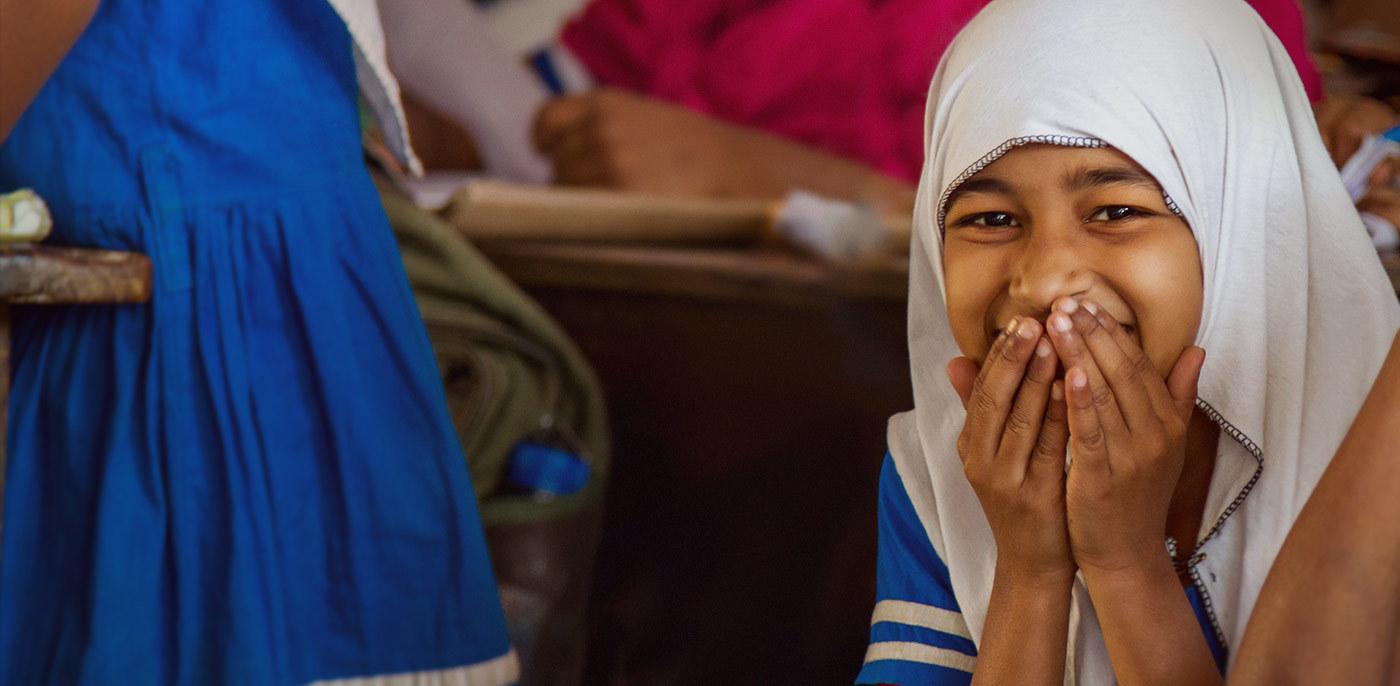20,603 CHILDREN SERVED DAILY
Project Stats
START DATE
2013
SCALE & SCOPE
500 schools
TARGET POPULATION
150,000 children
ESTIMATED COMPLETION
TBD
CURRENT PROGRESS
11%
STRATEGIC EXIT
2017

20,603 CHILDREN SERVED DAILY
Bangladesh is the size of Kansas, but with the population of Russia. It is the 8th largest country of the world in terms of population, yet among the poorest.
164,700,000
Between now and 2050, Bangladesh’s cities will add nearly 100 million people
Convince the world’s largest NGO to steal our model.
2013
500 schools
150,000 children
TBD
11%
2017
14,399,000
115,200/sq mi
It makes sense to centralize our work in Dhaka, the capitol city: 4,000 slum neighborhoods with 3.5 million residents justify our attention. As the second fastest-growing city on the planet—as well as the 9th largest country by population—the term “urban growth” takes on entirely new meaning. If scale can be proven in the poorest communities of Dhaka, it can be replicated in other cities across Bangladesh, South Asia, and various other parts of the world.
Splash launched a pilot aimed to leverage the vast resources, expertise, and social capital of one of the world's leading WASH organizations through a multi-year partnership. During this time, filtration systems, handwashing stations, drinking water stations were installed and toilets were built and refurbished. We implemented behavior change initiatives like soap drives, child cabinets, and teacher training. In all, 71 schools were served.
This partnership was an effort to show this program could be scaled in Dhaka. However, the pilot didn’t continue after the first year due to a decrease in funding for WASH initiatives.
We still believe Bangladesh is a high priority country for Splash’s brand of work. There are many local organizations that Splash could work with to build their capacity and launch WASH in Schools programs nationally. We are exploring options to achieve this.
Our ultimate goal is still to share internal knowledge, networks, tech transfer, design, and monitoring and evaluation, such that an existing organization can take the Splash model to scale and Splash can exit strategically. For future relationships, we must ensure we have a clear monitoring, learning, and evaluation system in place and an ongoing focus on supporting the transition from direct to indirect service. In the end, if our work is about real scale and sustainability, then allowing our core models to be implemented by local organizations only makes sense.
Learn more about Splash's impact here.
Dhaka is the most densely populated city in the world; 5x the density of New York City.